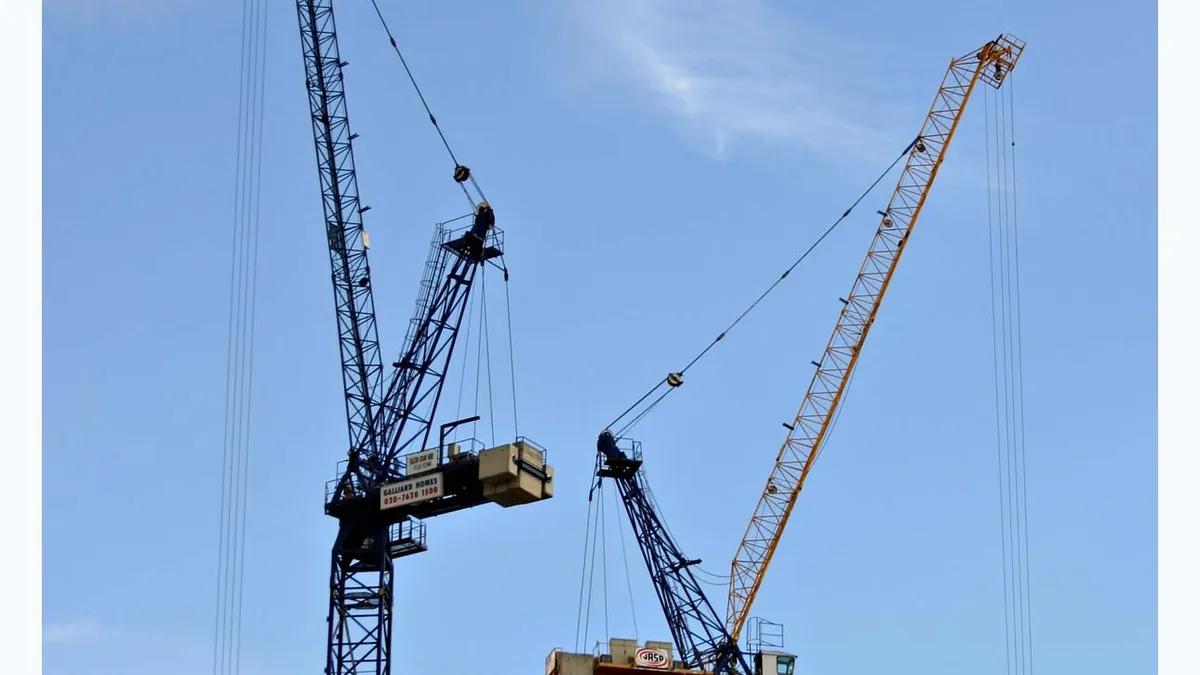Sometimes, the longer a good thing lasts, the louder rumblings get that a reality check could be around the corner, and construction industry economics is no exception. However, it’s smart to prepare for a wide variety of economic conditions, and that’s one of the messages in management consulting company FMI Corp.’s 2019 forecast for the engineering and construction sectors.
Management consulting and investment banking firm FMI predicts that engineering and construction industry growth across all types of projects — both residential and nonresidential — should continue for the next 18 to 24 months, albeit at a slightly slower pace than in previous years, at 3% versus 5% recorded in both 2017 and 2018.
But where we are in the economic cycle has investors a little twitchy. If a downturn actually happens, this burgeoning hesitancy could even take some air out of the booming construction technology market — which has seen $10 billion of investment during the last 10 years — if venture capitalists would rather sink their money into a more predictable sector.
Many contractors who took it on the chin during the Great Recession are in the enviable position of being able to pick and choose among eager clients, even if they are dealing with rising costs and struggling to find and retain qualified workers in nearly every area of their businesses. However, the contractors who have been around for a while will be the first to agree with FMI — the time to start planning for bad times is when times are still good.
In order to “recession-proof” their companies, FMI suggested that contractors:
- Cut what’s not working in their businesses. This includes employees who are not living up to expectations and even entire units that are underperforming.
- Find a niche and stick with it. Play to the company’s core competencies.
- Be proactive in designing a business strategy, then focus on the big picture.
- Get educated on business fundamentals like the true costs of work in order to be able to better respond to market shifts.
- Keep an eye on the cash. Contractors should always know what their working capital needs will be for at least six months, if not further, into the future.
- Become a standout in the company’s chosen market by developing solid client relationships, pursuing the type of projects that will likely still move forward even if a recession comes along and identifying which markets will allow for expansion.
- Have employees brush up on their people skills, which become more important in a downturn, and educate them about the company’s priorities should the industry go into a recession.
One of the most important moves a company can make toward weathering a recession, FMI said, is to keep as much cash on hand as possible. Even if work dries up, having enough money in the bank could be the difference between surviving and closing the doors.
FMI said construction companies should also embrace technologies that help them enhance their performance.
For owners and managers, the process of shoring up a business for longevity regardless of the market involves action on some broad concepts, such as the following:
- Be clear about the company’s purpose and constantly analyze the data to make sure operations are in line with those goals.
- Be agile and flexible.
- Look to industry leaders as a source of information and education.
- Become more creative in developing business strategies.
- Identify key employees and sketch out plans for their future with the company.
A downturn doesn't have to mean the end of business as long as contractors put in the early work and ready themselves for any economy.












